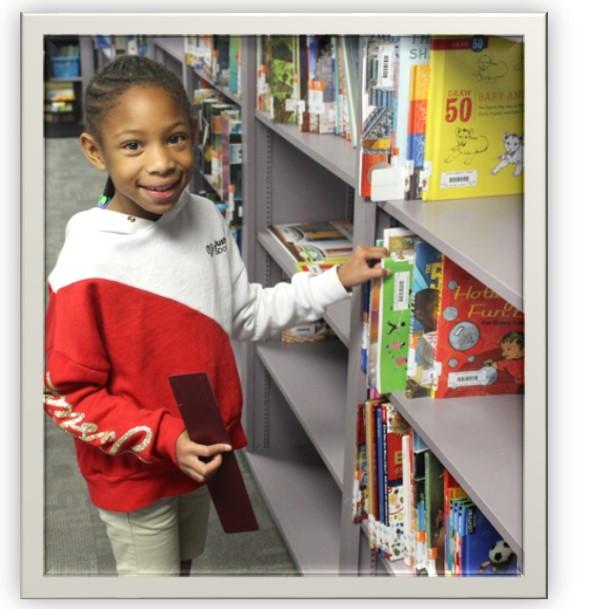Literacy is a critical predictor of educational and lifelong success. The pursuit, attainment, and application of knowledge is based on the ability to read and write.
“We know from research and experience, by providing a strong foundation for literacy in a child’s early years and continuing to focus on reading and writing skills in their secondary education, that students are more successful in school and are set up for success in their adult lives,” said BPSB Supervisor of Instruction K-5 Dione Bradford.
“The Beauregard Parish school system, in conjunction with the Louisiana Department of Education’s focus on literacy, has developed a Literacy Plan designed to provide a growth-centered and literacy-grounded environment for students in our schools.”
 The plan focuses on the areas of Reading, Writing, Critical Thinking, Speaking, and Listening, providing a strong framework for a rich, structured literacy program to move students toward proficiency and mastery of defined reading and writing skills.
The plan focuses on the areas of Reading, Writing, Critical Thinking, Speaking, and Listening, providing a strong framework for a rich, structured literacy program to move students toward proficiency and mastery of defined reading and writing skills.
The Louisiana Department of Education (LDOE) has developed the Louisiana Literacy Pillars – four focus areas to promote literacy for students across the state. The four pillars include: 1) schools creating and monitoring literacy goals to increase student outcomes; 2) schools implementing core instruction and literacy interventions based on individual student needs; 3) schools providing ongoing professional growth for effective teaching in literacy, and 4) schools involving families in the child’s literacy development.
“The goal of our literacy initiative in Beauregard Parish is to provide avenues for students to master English Language Arts standards by becoming more proficient readers, writers, critical thinkers, speakers, and listeners,” Bradford explained.
Schools in Beauregard Parish are using Tier I curriculum for primary instruction, including implementing Core Knowledge Language Arts (CKLA) in K-3 classrooms and continuing to use Louisiana Guidebooks for 4-12 instruction.
This summer, K-3 teachers received CKLA initial training and in-class intervention training, and ELA teachers 4-12 who are new to the parish participated in LA Guidebook workshops. In addition, school administrators and ELA teachers reviewed previous LEAP results to create goals specific to the needs of the students at each school.
Activities supporting literacy are planned throughout the school year including elementary schools continuing the Accelerated Reader (AR) program for K-3 students and implementing the STAR reading diagnostic for 3-5 students. Family Reading and STEAM nights will also take place at schools across the parish.
Superintendent Timothy Cooley will release a Superintendent’s Reading List of books on each grade level as a challenge to students for independent reading. Title I sends out monthly reading newsletters with literacy activities for K-8 students to engage in literacy activities with parents at home.
Several diagnostic and monitoring programs are in place to measure student growth and provide prescriptive measures throughout the school year for individual intervention and growth. These include DIBELS benchmark and diagnostic tests, LEAP 360 ELA Diagnostic, Exact PATH Diagnostic, ACT practice tests, and Go Growth Maps. All elementary schools also have Reading Interventionists who provide focused instruction for struggling students.
The school system has hired two English Learner (EL) specialists who will work with the EL students and their teachers throughout the school year, and a pilot program will be implemented at Pine Wood Elementary in an after-school program designed to help struggling students find an outlet through creative writing.
Additionally, the parish curriculum has dedicated time for creative writing across grade levels, and a community-wide event for K-5 students is being planned with STEAM activities, interactive games, a read-aloud, and book giveaways.
“This year, our motto is: Every teacher is a reading teacher; every teacher is a writing teacher,” concluded Bradford. “Our Literacy Plan will move us forward toward our goals of having improved literacy outcomes through high-quality instruction and interventions in our schools while also involving parents and engaging students in the literacy initiative.”

 Additional settings for Safari Browser.
Additional settings for Safari Browser.


 The plan focuses on the areas of Reading, Writing, Critical Thinking, Speaking, and Listening, providing a strong framework for a rich, structured literacy program to move students toward proficiency and mastery of defined reading and writing skills.
The plan focuses on the areas of Reading, Writing, Critical Thinking, Speaking, and Listening, providing a strong framework for a rich, structured literacy program to move students toward proficiency and mastery of defined reading and writing skills.